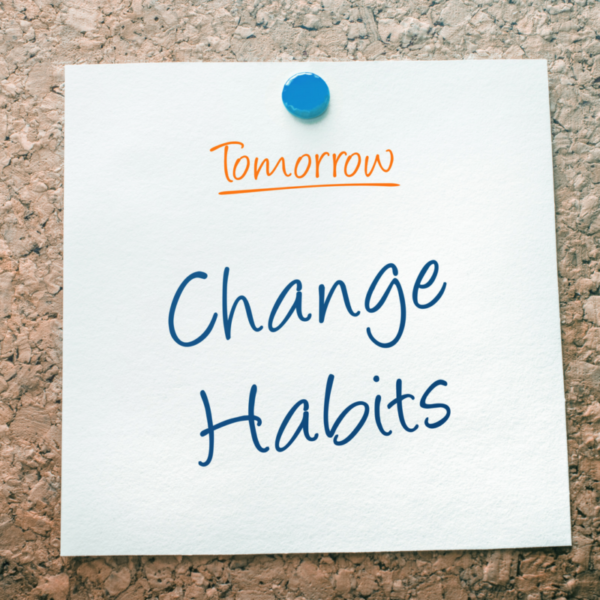From the archives, August 19, 2015
Update, August 12, 2018
Many of us found that we had several characteristics in common as a result of being brought up in an alcoholic or dysfunctional household. We had come to feel isolated and uneasy with other people, especially authority figures. To protect ourselves, we became people-pleasers, even though we lost our own identities in the process. All the same we would mistake any personal criticism as a threat. We either became alcoholics (or practiced other addictive behavior) ourselves, or married them, or both. Failing that, we found other compulsive personalities, such as a workaholic, to fulfill our sick need for abandonment.”
-ACOA, The Problem
How a People Pleaser Became a Family Pleaser.
I didn’t ask to become a people pleaser. It came quite honestly. Absorbed in childhood, it quickly infiltrates our lives.
According to ACOA (Adult Children of Alcoholics), children of alcoholics—i.e., me—in order to protect themselves, “become people-pleasers, even though we lost our own identities in the process. All the same we would mistake any personal criticism as a threat.”
Compounding this inherent “nature or nurture or a little of both” people-pleasing gene of mine, I stepped onto the stage in 4th grade—quite innocently desiring to twirl my may through a talent show—only to find the applause and approval even more palatable to my ever-so-needy-self-esteem-tank.
Without even knowing it, patterns were cemented in the foundation of my personality.
Did I Mention My Hate for People Pleasing?
Flash forward about twenty years or so and little-twirling-please-people Janell became adult-whirling-please-children-and-husband Janell.
I hate it. There’s not many things I hate, but I hate “the effects” of people pleasing on both myself and everyone around me. Dr. Jay Earley writes:
Read over these statements to see if they apply to you under some circumstances:
- I try to be who someone wants me to be.
- I am afraid to rock the boat.
- It is hard for me to know what I want.
- I avoid speaking my mind.
- I find it easier to go along with what someone wants or with their opinion.
- I fantasize about a strong person taking over my life and making it work.
- It is hard for me to express my feelings when they are different from someone I’m close to.
- It is difficult for me to say No.
- I avoid getting angry.
- It is hard for me to take initiative.
- I try to be nice rather than expressing how I really feel.
Bingo. I’m 11 for 11.
On our recent visit-the-twins-in-the-Midwest vacation (2015), several specific circumstances literally forced my husband and children to confront me on this issue. After 31 years, he’s so ready for me to be decisive, stable in my choices, and for the love of Pete, to stop second-guessing. He’s so patient and loving, but even the most patient man has his limits.
And, to the credit of my beloved twins, they lovingly asked me, in so many words, to “be decisive” and “to let go.” Yes, it was hard at first, but I really want to be whole and have asked them to be honest with me. ACOA gave me great clarity concerning these “calls to accountability”:
Having an overdeveloped sense of responsibility, we preferred to be concerned with others rather than ourselves. We got guilt feelings when we stood up for ourselves rather than giving in to others. Thus, we became reactors, rather than actors, letting others take the initiative. We were dependent personalities, terrified of abandonment, willing to do almost anything to hold on to a relationship in order not to be abandoned emotionally. Yet we kept choosing insecure relationships because they matched our childhood relationship with alcoholic or dysfunctional parents.”
-ACOA, The Problem
I can’t begin to tell me how freeing their words and direction have been. It is almost as if they gave me permission to let go of this “overdeveloped sense of responsibility” and finally think of myself.
It feels uncomfortable and strangely, deeply joyous.
Small Steps + Hard Work + God’s Grace = Transformation.
More is caught than taught.”
I often joke that I am a recovering people-pleaser, but it really isn’t a laughing matter.
It’s so dang serious.
Much like alcoholics have to work the Twelve Steps of AA, ACOA have to work the steps of Al-Anon. I never did that as a child or teenager, but it isn’t too late, is it? It is never too late to change. Never.
ACOA, Al-Anon, offers these twelve promises:
- We will discover our real identities by loving and accepting ourselves.
- Our self-esteem will increase as we give ourselves approval on a daily basis.
- Fear of authority figures and the need to “people-please” will leave us.
- Our ability to share intimacy will grow inside us.
- As we face our abandonment issues, we will be attracted by strengths and become more tolerant of weaknesses.
- We will enjoy feeling stable, peaceful, and financially secure.
- We will learn how to play and have fun in our lives.
- We will choose to love people who can love and be responsible for themselves.
- Healthy boundaries and limits will become easier for us to set.
- Fears of failure and success will leave us, as we intuitively make healthier choices.
- With help from our ACA support group, we will slowly release our dysfunctional behaviors.
- Gradually, with our Higher Power’s help, i.e. THE ONE AND ONLY TRUE GOD, we will learn to expect the best and get it.
Flash Forward to Today, August 12, 2018
Transformation Happens Layer by Layer: Be gracious to yourself.
It’s been three years since that visit-the-twins-in-the-Midwest vacation. I am proud to say I am doing much, much better when it comes to this whole people pleasing/family pleasing thing in my life. Yet, while on our most recent Beach Week 2018 journey, I backslid into that dang family pleaser role. Make everyone happy at all cost.
It happened quite honestly, as it is a deeply rooted behavior I absorbed in childhood. One that won’t go away easily. I have to be vigilant and intentional. But, when it rises up without notice, an internal battle wages in my mind—to the point that I actually get a headache. Now that I am aware of “what” and “how” people/family pleasing plays out, I have to choose the right response.
In a simple ferry line—that played out as a two-hour wait for the ferry on a very hot day—I failed to choose the healthy response. Sparing a good many details, as they are really not important here, I should (and this is a good should), have voiced my opinion about “what” we should do in this situation. But, I was trying to “keep” my husband happy and my son and his wife happy, even though none of us were really “happy.”
In hindsight, as hindsight is always 20/20, I would have been more vocal about making an Ocracoke visit on “our next Beach Week trip,”—as there will be more—and instead suggest turning the car around, heading to Cape Hatteras Point Beach, eat dinner around a beach fire, and have a much more restful, peaceful day.
Good news? We had a good day and a great Beach Week 2018. The ups-downs-and-all-arounds are what my dad famously called, “One famdamily time.” Rob and I have high standards, high ideals—often perfectionistic in nature—and we are growing through and learning how to relax where we need to relax. “Chill” in the deepest of emotional ways. We are committed to emotional healing.
My Lessons Learned?
Most importantly:
- Stop the people/family pleasing, Janell, and go with the flow.
- Be flexible.
- Always keep a deck of cards in your purse in case you might have a long wait somewhere.
- Use your voice—the one you help so many other women use—exercise healthy assertiveness (entire chapter in my next book).
- Remember, it is not my responsibility nor should I worry about everyone “liking” me. That is impossible. They won’t. Even those who love me to the moon and back won’t always “like me.” My happiness doesn’t depend on that. Jesus Christ is the only source of true joy and deep contentment.
- Arguments and conflict happen, in the smallest of ways. Learn how to effectively manage conflict.
- And realize, in the end, you can’t, won’t, shouldn’t even try to make everyone happy. Who do I think I am anyway…God?
Masked inside of a people pleaser is a great deal of control and self-will. Life Coach, Christine Hassler writes:
You may think being a people pleaser makes you a “good” person and is perhaps even a generous or loving way to be. Nope. It’s selfish to be a people pleaser. Why? Because being attached to pleasing others is really about you. You are the one who wants to be liked. You are the one who does not want to upset anyone. You are the one who wants to look good for others. You are the one who is not okay with other people’s reactions. You are the one protecting yourself from confrontation. And you are the one who is choosing to withhold expressing who you TRULY are. And by doing all of those things, you are keeping Yourself, your Light and your Love from the world – and that is selfish.
Will You Grow Up With Me?
Anytime we gather with others, be it family, friends, coworkers, church community, our humanity will always get in the way. There is no way around it. Maybe that is why I am so passionate about emotional health. I need the lessons more than anyone else. As I grow healthier, I invite you to join me on the journey. It’s a great journey, even when it hurts really bad, because at the end of the journey are healthier relationships and ultimately, healthier legacies. AND, that is what we are all about here at Speak Healing Words.
On the ferry ride home, I was very quiet, but I did think of Paul’s words. Thankfully, God offers to help us in our times of need and offers the best promise of all, found right here in Romans 12:1-2, MSG:
So here’s what I want you to do, God helping you: Take your everyday, ordinary life—your sleeping, eating, going-to-work, and walking-around life—and place it before God as an offering. Embracing what God does for you is the best thing you can do for him. Don’t become so well-adjusted to your culture that you fit into it without even thinking. Instead, fix your attention on God. You’ll be changed from the inside out. Readily recognize what he wants from you, and quickly respond to it.Unlike the culture around you, always dragging you down to its level of immaturity, God brings the best out of you, develops well-formed maturity in you.
Paul challenges us to “readily recognize what he wants from you, and quickly respond to it.”
Join me? I’d sure love your company.







I agree with what you say about the people pleasing, BUT I have been contemplating our meeting on Ocracoke and how God orchestrated that! The mind of man plans his way but the Lord directs his steps:) WE had determined to be in Ocracoke earlier in the day for once! But were held up till later. I have been thinking about our “chance” meeting with a sense of awe. Wanted you to know I prayed for you and your mother and will continue. All this to say that sometimes when we feel we haven’t done what we should have done, God is at work doing something more! It was a delight to see you!
Thank you, Susan. Yes, that was a beautiful “chance” meeting. Your words are so true…God is always working at something more. Thank you for praying for us. Mom has had beautiful victories and so, thank you!
AMEN! I’m just catching onto realizing I’ve been a people-pleaser with the help of many God-fearing Christian women and they’re teaching me about the love of Jesus!
very practical and powerful through i am planning to put these thoughts into discussion in small groups
thank you so much … i took the print out
I am so thankful, Vilbert. How many books would you like me to send to you? And, to what address? Be clear and specific so I don’t make any mistakes. Blessings!